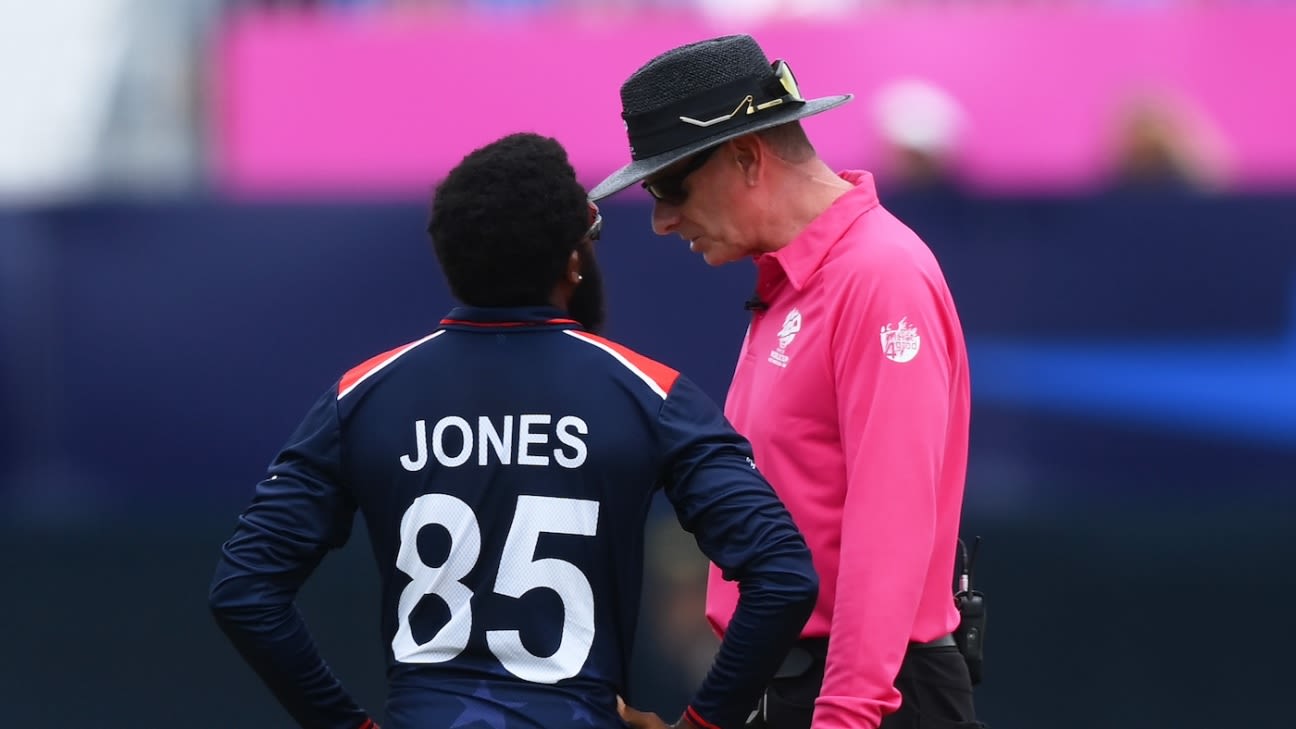 |
|
In a significant development, the United States cricket team became the first squad to be penalized under the newly implemented stop-clock regulations in T20 International cricket. This penalty, imposed for excessive time taken between overs, cost the USA team five crucial runs during a critical phase of India's chase in their T20 World Cup group match in New York.
The stop-clock regulation, enforced to expedite the pace of play in T20Is, dictates that the fielding side must commence the subsequent over within 60 seconds of the conclusion of the previous one. If this time limit is breached three times in an innings, a five-run penalty is imposed. During the 16th over of the match, as India sought 35 runs to secure victory on a challenging batting surface, the USA team incurred this penalty, reducing India's target to 30 runs from 30 balls.
Following the defeat, which eliminated the USA from the Super Eight stage of the T20 World Cup, USA coach Stuart Law acknowledged the need for improvement. Law emphasized that the team had received prior warnings regarding the stop-clock regulations and expressed the team's intention to address the issue. He maintained that the penalty did not significantly affect the outcome of the match, as India eventually won by seven wickets with ten balls remaining.
This incident serves as a reminder to all teams of the importance of adhering to playing regulations and highlights the ICC's commitment to enhancing the pace of play in cricket. It remains to be seen whether the stop-clock penalty will become a common occurrence or if teams will adapt quickly to the new time constraints.
The USA team's experience in this match underscores the challenges faced by emerging cricket nations in adapting to the intricacies of the game's regulations. The implementation of new rules and regulations can present a learning curve for teams, particularly those with limited exposure to international cricket. As the sport continues to evolve and new initiatives are introduced, it is essential for teams to stay abreast of the latest regulations and adapt their strategies accordingly.
The stop-clock penalty controversy has also sparked a debate about the potential impact of such measures on the quality of cricket played. While the ICC's intention is to enhance the pace of play, some critics argue that it could compromise the tactical and strategic elements of the game. It remains to be seen how the stop-clock regulation will be received by the cricketing community and whether it will ultimately lead to a more engaging and entertaining viewing experience.
As the T20 World Cup progresses, it will be interesting to monitor how other teams respond to the stop-clock regulations. The outcome of this match serves as a valuable lesson, reminding teams of the importance of time management and adherence to playing conditions. It is likely that teams will prioritize efficient over transitions and explore innovative strategies to maintain momentum while staying within the time constraints imposed by the stop-clock.
In conclusion, the stop-clock penalty incurred by the USA team in their T20 World Cup match against India marks a significant development in the enforcement of playing regulations in cricket. As teams continue to adjust to this new measure, it will be intriguing to witness its long-term impact on the pace and quality of the game. The ICC's commitment to enhancing the fan experience through faster-paced matches is commendable, but it remains to be seen whether the stop-clock regulation will strike the right balance between expediency and the preservation of the sport's cherished traditions.
Source: USA hit with first-ever stop-clock penalty at crucial time against India
